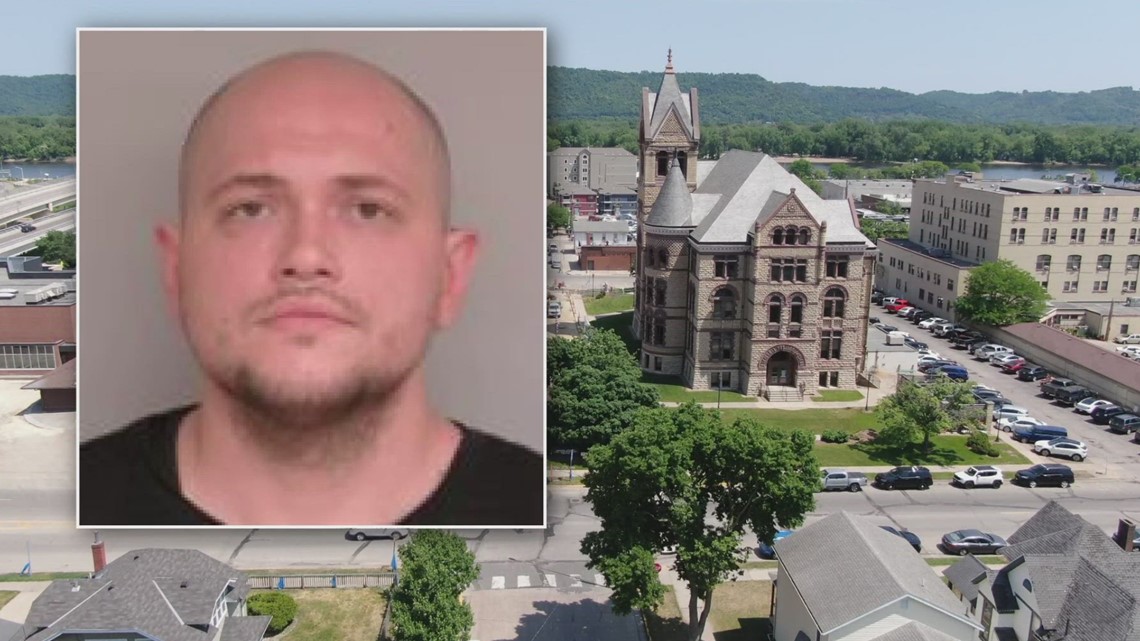CBS News
Highway that divided Syracuse decades ago is set to be demolished, reconnecting a neighborhood

When Interstate 81 was built in the 1960s, it sliced right through Syracuse’s Pioneer Homes — one of the nation’s oldest public housing communities, which had been built some three decades earlier. But in a few years, the government is set to level to level a mile and a half of the highway and reconnect a neighborhood.
Bishop Bernard Alex’s church is just a few miles from Syracuse, where he grew up. He says the highway stretch of I-81 sits over where people from his hometown used to plant gardens.
“You took away a thriving, vibrant community,” he said “You took away the hope and the space of a people.”
Alex said he believes the highway’s construction in New York state was a deliberate attempt to drive certain people out of the area.
To this day, the highway casts a massive shadow, separating Pioneer Homes from White and affluent neighborhoods, hospitals and schools.
A CBS News review of federal records found communities that sit in the shadows of major highways suffer higher pollution rates. The people have higher asthma rates and the income levels and property values are lower.
Syracuse is one of more than 130 communities nationwide that shared $3 billion in federal awards this year to reconnect neighborhoods segregated by highway planners in the 1900s. From Portland, Oregon to Philadelphia, cities are repurposing stretches of expressways with parks and green space planted over the roadways, a process known as capping.
Syracuse Mayor Ben Walsh said his city’s project is among the most ambitious, calling the soon-to-be-demolished stretch of I-81 “a scar that goes through the heart of our city.”
At a cost of more than $2 billion, I-81 is being rerouted around Syracuse. The current stretch will then be demolished and replaced with a pedestrian-friendly grid of surface streets with shops, stop signs and potentially new life for Pioneer Homes
“We can’t undo the wrongs of the past,” Walsh said. “But we can try to get it right this time around. We have an opportunity to knit back the fabric of our cities and to bring people together.”
Alex hopes the demolition will prompt people to move back to the neighborhoods near Pioneer Homes
But in other traffic-choked cities across the country, highway expansion goes on. Like in North Charleston, South Carolina, where Interstate 526, which runs through many mostly Black neighborhoods, is set to be widened.
North Charleston Mayor Reggie Burgess said the expansion is “unavoidable.”
Burgess said dozens of homeowners will need to be relocated, but the state is offering affected residents housing assistance, employment help and college grants
“Of course, we don’t want to displace people. But when we have to actually improve the infrastructure, sometimes we have to make decisions that are not accepted, but I think that people understand it,” he said.
CBS News
Retired FBI official on Wisconsin school shooting

Watch CBS News
Be the first to know
Get browser notifications for breaking news, live events, and exclusive reporting.
CBS News
Accused Gilgo Beach serial killer charged with murder of 7th woman

Watch CBS News
Be the first to know
Get browser notifications for breaking news, live events, and exclusive reporting.
CBS News
Lawmakers scramble on government funding as shutdown deadline nears

Washington — Congressional leaders have yet to unveil their plan to keep the government funded through the spring, prompting concerns about thwarting a shutdown before a Friday night deadline.
House Speaker Mike Johnson, who has repeatedly said that the stopgap funding measure’s release was imminent in recent days, said Tuesday morning that he expected to the text of what’s known as a continuing resolution would be made public by the end of the day. The bill would maintain current funding levels until March 14, giving lawmakers more time to reach agreement on new spending bills when the GOP controls both the House and the Senate.
“The CR is coming together, bipartisan work is ongoing,” Johnson said. “We’re almost there.”
The speaker said lawmakers have been “working around the clock to get the CR done,” noting that it was intended to be “a very simple, very clean” stopgap funding measure to get the party into the new year. But the Louisiana Republican said a “couple of intervening things” have occurred, citing the devastation caused by hurricanes Helene and Milton earlier this year. Johnson said the stopgap measure includes disaster relief that is “critically important,” and provides aid to farmers.
“What would have been a very skinny, very simple clean CR, these other pieces have been added to it,” Johnson said.
Johnson noted that House Republicans are aiming to resolve the government funding fight earlier in the year, before the March 14 deadline in the continuing resolution.
Bill Clark/CQ-Roll Call, Inc via Getty Images
On the timing of the measure to keep the government funded this week, the speaker said he believes in adhering to rule that gives members 72 hours to review legislation before it’s brought to the floor, which would push a vote on the stopgap measure until Friday. And he said House Republican leadership is committed to passing the continuing resolution through the regular process, including by going through the House Rules Committee, where it’s almost certain to face opposition from GOP hardliners that could further slow the path to passage.
Meanwhile, lawmakers on the party’s right flank have already expressed opposition to the stopgap measure. Rep. Chip Roy, a Texas Republican who sits on the Rules Committee, told reporters after the House GOP conference meeting Tuesday morning that “this is not the process that we signed up for,” saying lawmakers are supposed to be able to amend and debate key legislation on the House floor.
“We get this negotiated crap and we’re forced to eat this crap sandwich,” Roy said. “Why? Because freaking Christmas is right around the corner. It’s the same dang thing every year — legislate by crisis, legislate by calendar, not legislate because it’s the right thing to do.”
Johnson has previously expressed distaste for large end-of-year funding measures known as omnibuses, and pledged to avoid the practice of pushing through spending before the holiday recess. He defended the continuing resolution Tuesday, saying “it is not an omnibus” and arguing that it will put the party in a position to “put our fingerprints on what those final spending bills are” in the new year.
The frustration comes as Johnson faces a referendum on his job performance in a matter of weeks, with the chamber set to vote to elect a speaker in the new year.
“Everybody knows we have difficult circumstances,” Johnson said, when asked about how the funding fight could weigh on the speaker vote. “We’re doing the very best we can under those circumstances.”




